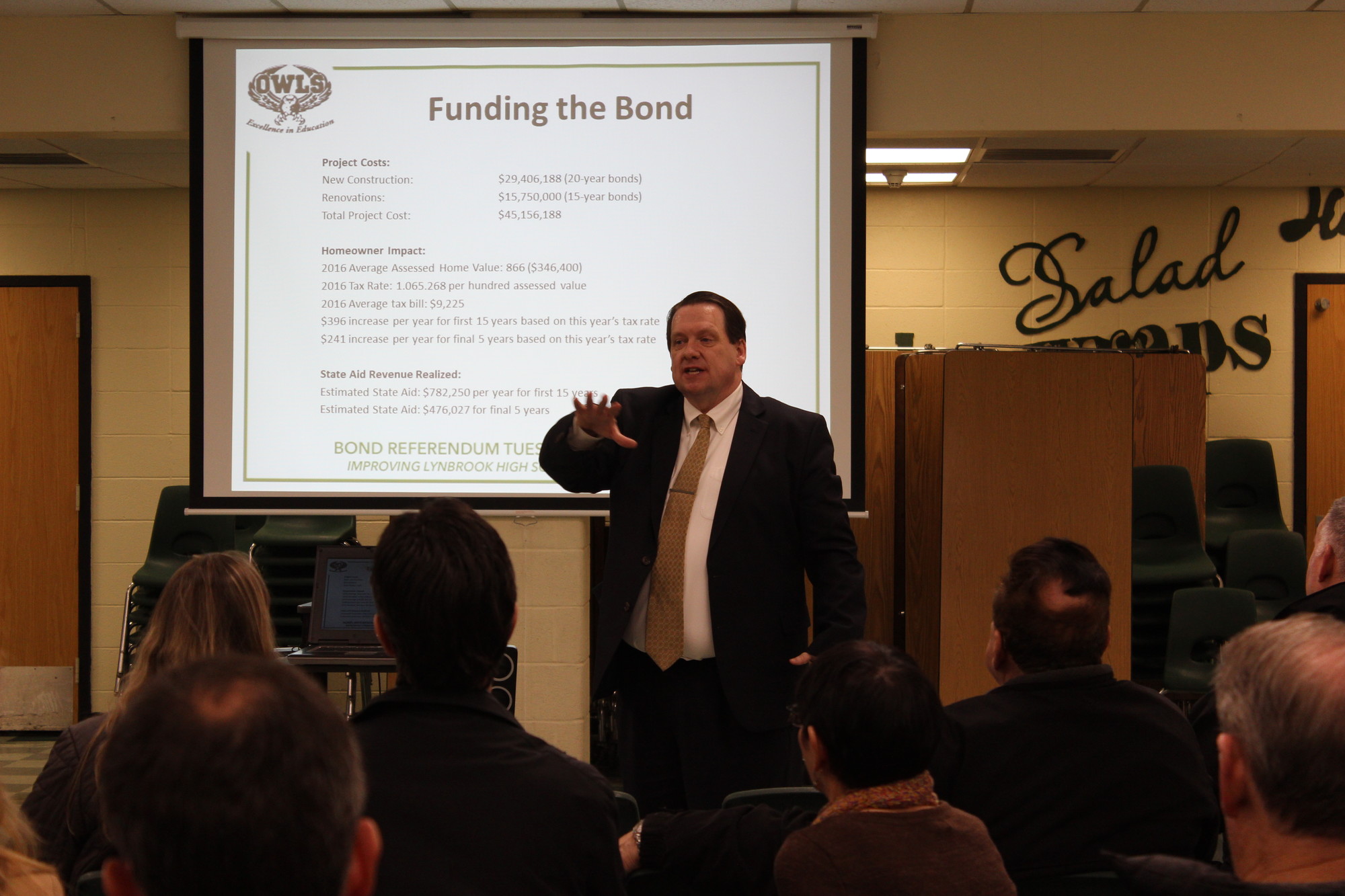District seeks approval for $45 million bond
Dozens of Lynbrook residents attended a bond forum on Feb. 1 to learn more about the district’s $45 million proposed facilities upgrades for the high school.
“It has been several years of planning that has brought us to this point,” said Superintendent Melissa Burak. “And for the past couple of months we’ve been doing presentations to provide some specifics about our bond referendum proposal.”
The bond is up for public referendum on March 15, and would fund construction of a 646-seat performing arts center as well as upgrades to the school’s science labs and library. The forum was the most interactive one yet as residents could opt to take a tour of the building or speak with the school’s bond council or architects after a brief question and answer period.
The cost to the average homeowner, over the 20-year life span of the bond, would be approximately $357 per year. Burak said the current fourth grade class would be the first class to utilize the fully renovated high school.
According to Paul Lynch, the assistant superintendent for finance, operations, and information systems, the $45 million includes an 18 percent contingency factor to address any unforeseen fluctuations in cost.
Several parents at the forum were concerned about the prospect of costs increasing beyond what was initially voted on. Lynch explained that the amount that is voted on in March is what is legally authorized to spend, and that it isn’t anticipated to overshoot the $45 million calculation — though, if it should there are several options at that point.
“We have two very healthy reserves right now that we have earmarked for very specific projects,” Lynch said. “But should this come up — which again, we have the contingencies built in there — the capital reserves would be able to handle some of that overflow.”
Those capital reserves would also have to be approved by a vote before they could be used, Lynch said.
One parent, who declined to be named, suggested the architectural firm try to bid the work all at once to negotiate the best deal. His concern was that by bidding each installment of construction as a separate item, costs might exceed what was initially anticipated.











